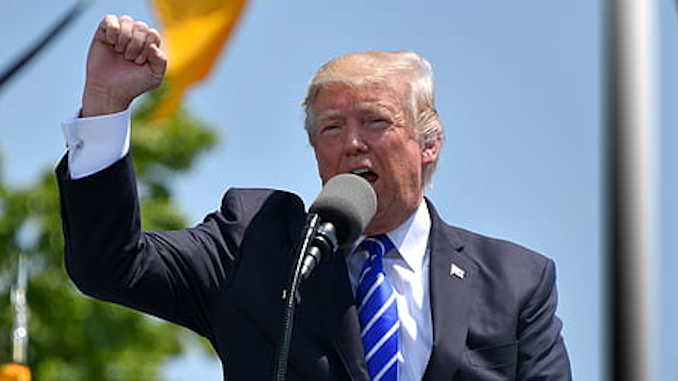
By Ron Paul
President Donald Trump is hardly the first political figure who has had the legal and policy processes weaponized against him. In fact, there is a long and shameful history of U.S. politicians and bureaucrats weaponizing governmental powers against their political opponents.
Click the Link Below to Listen to the Audio of This Article
The First Amendment was not even a decade old when fear of influence on America by French agents was used to support the passage of the Alien and Sedition Acts. This outlawed “false, scandalous, and malicious writing” against the U.S. government, Congress, or the president and made it illegal to conspire “to oppose any measure or measures of the government of the United States.”
The weaponization of politics is another example of how hysteria over alleged foreign threats leads to less liberty. The claim that opponents of U.S. government policy were serving interests of France is an early example. Sadly, critics of U.S. government policy have been smeared for spreading disinformation to benefit hostile foreign powers many times since.
During the Civil War, President Abraham Lincoln oversaw the shutting down of newspapers and even the arresting of state legislators. After the U.S. became involved in World War I, Congress passed a new Sedition Act banning “disloyal, profane, scurrilous, or abusive language” toward the military or U.S. government. This act was used to imprison Eugene Debs, who then ran for president as the Socialist Party nominee while in prison.
Opponents of U.S. involvement in World War II were accused by supporters of U.S. military intervention of being a “fifth column” for Germany’s government. Later, opponents of wars in Vietnam, Iraq, and other countries where the U.S. intervened were subjected to government surveillance and harassment.
Critics of U.S. foreign policy may be the first critics of the U.S. government targeted for opposing government policies, but they are not the last. FBI Director J. Edgar Hoover targeted the civil rights movement and wiretapped and harassed Martin Luther King Jr. Hoover also kept files on those he deemed subversives, including even the pop music group The Monkees.
Presidents of both parties have used the IRS against their political enemies. As an IRS agent told the head of a conservative organization who was being audited after calling for the impeachment of then-President Bill Clinton, “What do you expect when you target the president?”
The drafters of the Constitution knew those with power would always be tempted to use the power against their opponents. Hence, they created a limited government where power was diffused and checked. Unfortunately, American politicians gave in to the temptation to weaponize the law against their opponents in the early days of the Republic.
Since then, the growth of government has led to the growth of an unelected and unaccountable bureaucracy that plays an important role for the Deep State. The Deep State pursues its own agenda regardless of the wishes of the people. The Deep State works to subvert those who oppose its agenda, using tactics up to and including assassination in the case of President John F. Kennedy.
A lesson of this history is that people who desire liberty should not trust the U.S. government to advance liberty. Instead, they need to be vigilant in ensuring the government acts within the limits stated in the Constitution. Making sure the government is pursuing a policy of peace and free trade abroad is also essential to promoting liberty at home.
Ron Paul, a former U.S. representative from Texas and medical doctor, continues to write his weekly column for the Ron Paul Institute for Peace and Prosperity, online at www.ronpaulinstitute.org.



